Hope in Our Hands
How Our Youngest Generations Are Working for Change
Protesters line the streets in front of the Arkansas Capitol building on June 6 in support of George Floyd and other victims of police violence. The protest lasted several hours and was entirely peaceful, with a 9-minute silent vigil followed by speeches by Black community leaders.
The protesters on the steps of the Arkansas State Capitol on June 6 held their signs and readjusted their masks as sweat beaded on their necks and foreheads. The weather was typical of a southern June–drowsy, warm, and relaxed–but the hearts of the protestors burned with a deeper heat.
“No More Cruelty,” read one poster. “I Can’t Breathe!” read another. A Black woman carried a pink sign high above the heads of the protestors, bearing the words “It could have been my son.”
The protest was entirely peaceful, with over eight minutes of silence held for George Floyd, followed by speeches by several Black community leaders from Little Rock. One notable speaker was Judge Olly Neal, the first African American prosecutor in the state of Arkansas. He took the podium to a roar of applause and, standing against a backdrop that depicted George Floyd and Breonna Taylor, he began to speak about his experiences.
“The first time I spoke to a group like this,” Neal said, “I was 19 years old, in 1960.”
I couldn’t help but wonder if Neal felt a sense of déjà vu as he stood overlooking a sea of solemn protestors. It had been sixty years since 1960, sixty years since Neal had begun organizing sit-ins to protest segregation in Memphis, Tennessee, sixty years since he spoke to a crowd at a protest that spoke out against the same systemic problems he spoke about today.
“I still have hope,” Neal said. “I still have hope, because as I look out there, among you, I see these young people. You, young people, your energy and determination, your daring, will make us keep going forward.”
I took stock of the crowd, and realized he was correct; the protestors were young, fresh-faced and filled with a drive that kept their heads high in the 93-degree weather. As Neal continued, I thought about the importance of American youth in the political process, and the key role they would play in shaping America’s future.
America’s political parties, movements, and organizations are obsessed with courting the young. The opening splash banner on the Democratic Party’s website is a picture of four bright-eyed children waving flags and smiling in a crowd of adults, who are relegated to the out-of-focus background. Accounts like “Conservative Teens,” run by adult administrators on Twitter, use trending hashtags and misuse trending slang to reach large audiences of teenagers and tweens. Even splinter organizations on the alt right and the far left have weaponized platforms like Instagram, Reddit, and Tumblr in an attempt to radicalize the youth who use those platforms.
Teenagers and young adults are important because young people are voting in increasing numbers each year. They will carry the torch of future political debate and thought, and thus far Generation Z is significantly more progressive than previous generations. A study by the PEW Research Center showed that 77% of voting youth disapprove of Trump’s job performance, and an article by Niall Ferguson of The Atlantic predicts that a veritable “generation war” will occur between Generation Z and older, more conservative generations like the Baby Boomers and the Silent Generation.
Neal’s remarks highlight one important thing about young Americans: we are important. Our actions, protests, and voting will determine the future of America as we know it, and it is up to us to make decisions that will protect the most vulnerable people in our society.
The youth of America have the power to break the cycle of discrimination that led to the killing of George Floyd, Breonna Taylor, and thousands more throughout America’s history. Politicians know this, older generations know this, and in greater numbers every day, we are coming to know this and to fulfill our duties as citizens and conscientious objectors to the status quo.
“It is an honor to be here–to fight with you in protest,” State Representative Vivian Flowers said in her speech at the June 6 protest. “People might say that protesting is a waste… but I have seen the wheels of justice begin to turn. I want to give young people a loud shout-out, because you are not just our future, you are our now.”
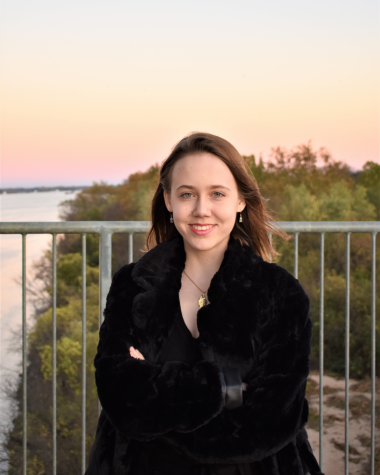


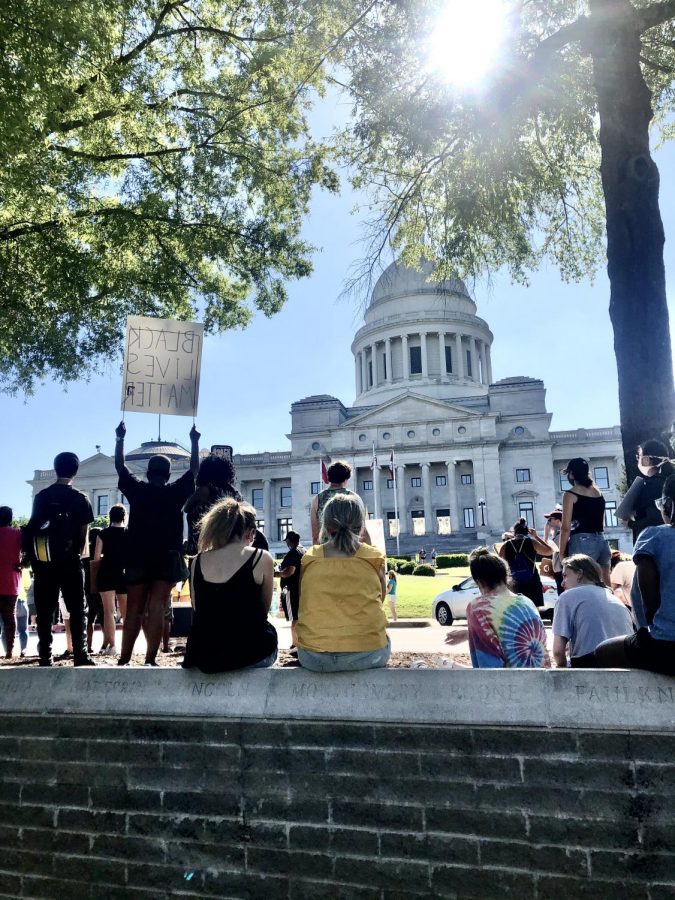



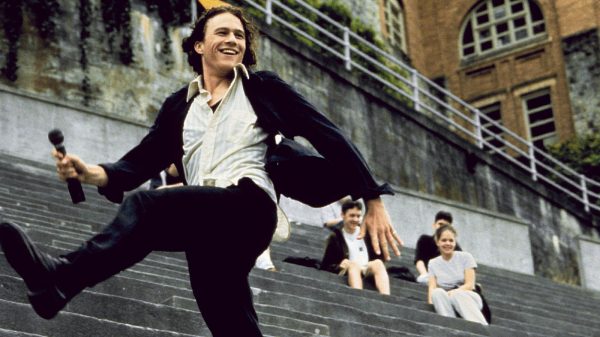
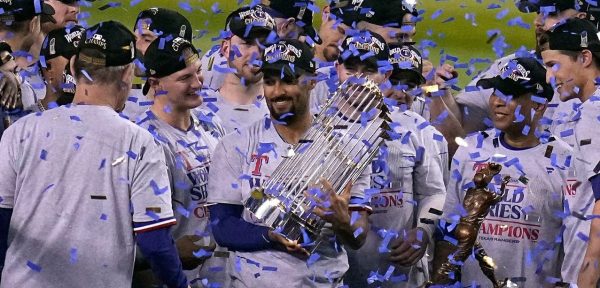
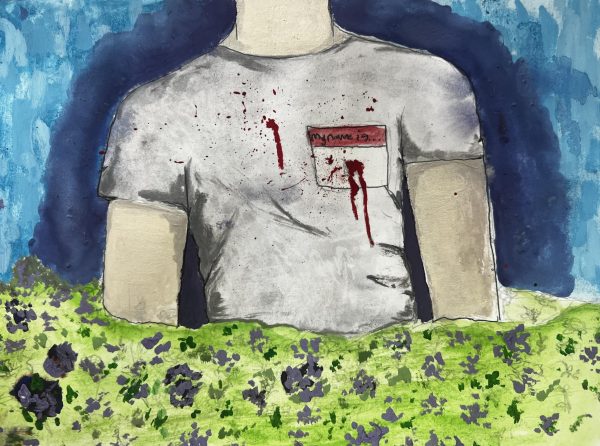
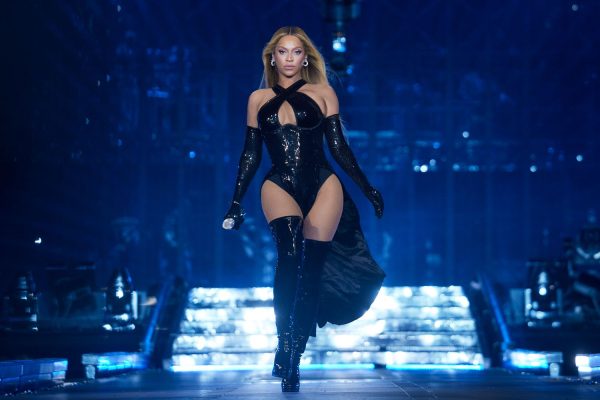

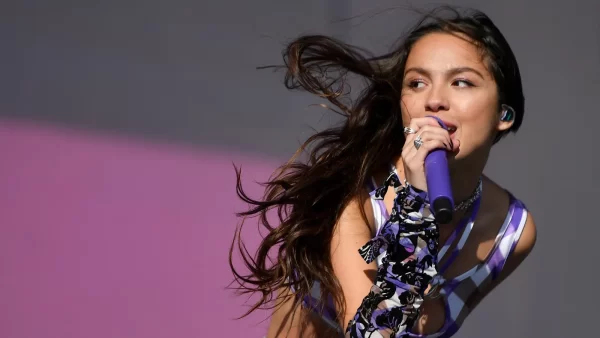
Stella Cameron • Jun 22, 2020 at 10:20 am
Great Article! I would have loved to have heard Judge Olly Neal engage the crowd. Your article gave me the sense that “I was at the Rally.” As a Baby Boomer who attended Vietnam protests and Civil Rights rallies, I am proud of your efforts to bring this information to your readers.